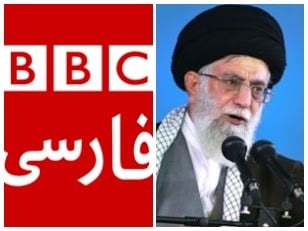BBC journalists will appeal to the UN over the “persecution and harassment” by Iran of those affiliated with its news service.
By: AP
The BBC said Monday its journalists will appeal for the first time directly to the United Nations (UN) over what the British broadcaster describes as the “persecution and harassment” by Iran of those affiliated with its Persian service.
The decision by the broadcaster comes after an Iranian court last year froze the assets of more than 150 people associated with its Persian service.
While long targeted by authorities in the Islamic Republic, the BBC said its decision came after harassment by authorities had worsened recently and their complaints had been “completely ignored.”
“We are not the only media organization to have been harassed or forced to compromise when dealing with Iran,” BBC director-general Tony Hall said in a statement. “In truth, this story is much wider: it is a story about fundamental human rights.”
Iranian state media did not immediately report on the BBC’s decision. Iran’s UN mission in New York did not immediately respond to a request for comment.
The BBC first disclosed the asset freezes in August, saying it came from a court at Tehran’s notorious Evin prison, which holds dual nationals and political detainees, among other prisoners.
The court order stopped those named from selling, buying or inheriting property and assets in the country, according to the BBC.
Other harassment by Iran has seen family members of BBC staffers arbitrarily detained, subject to travel bans or watched by intelligence service operatives, the broadcaster said. It also said women journalists at the service were targeted by “fake and defamatory news” by the Iranian government.
In October, the BBC filed a complaint to the UN. This week, the broadcaster said its journalists would speak before the UN Human Rights Council (UNHRC) in Geneva and take part in other activities.
The BBC’s Farsi-language service was barred from operating in Iran after the country’s disputed 2009 presidential election. Many Iranians still listen to its radio shows and watch its satellite television broadcasts. The BBC says the service reaches some 18 million people weekly.
British Foreign Secretary Boris Johnson has raised the BBC’s concerns with Iranian officials.





